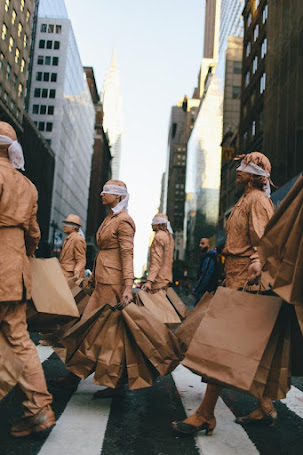7 Brands to Avoid and Why
A List Of Fast Fashion Brands To Avoid
Did you know that clothing consumption has increased by 400% in the last two decades, leading to significant environmental and social consequences? As the fast fashion industry continues to grow, it's crucial to be aware of the impact of our purchasing decisions. In this article, we'll shed light on 10 fast fashion brands that fall short in terms of sustainability and ethics, prompting you to make more informed choices for a better future.
Shein - Unsustainable Practices and Lack of Transparency:
With a massive following on Instagram, Chinese brand Shein thrives on frequent product releases at incredibly low prices. However, it fails to demonstrate efforts to mitigate its environmental impact or provide transparency regarding its supply chain and manufacturing processes. Concerns regarding fair wages and controversies surrounding offensive product listings further raise ethical concerns.
Mango - Striving for Sustainability but More Work Needed:
Spanish retailer Mango has taken steps toward sustainability, incorporating organic cotton and recycled polyester in its collections while eliminating hazardous chemicals. However, the brand lacks transparency in terms of factory information, living wages for workers, and its contribution to compensation efforts for Rana Plaza victims.
H&M - A Mixture of Sustainability and Ethical Concerns:
Although H&M has made strides in eliminating harmful chemicals and implementing a textile recycling program, it faces criticism for failing to provide a living wage to its workers and address issues such as physical and sexual abuse. Enhancing ethical practices and reducing greenhouse gas emissions should be prioritized.
Forever 21 - Social Responsibility Claims but Lack of Transparency:
Forever 21 offers affordable clothing, but questions arise about its commitment to eliminating child labor and forced labor. The brand's lack of transparency regarding production practices, environmental impact, and treatment of workers raises concerns about its ethical standing.
Urban Outfitters - Limited Transparency and Ethical Concerns:
Urban Outfitters' minimal disclosure about its environmental initiatives and supply chain transparency leaves consumers wondering about the brand's commitment to sustainability. Past controversies, such as exploiting employees and appropriating indigenous designs, further diminish its ethical reputation.
Zara - Mixed Progress and Lack of Transparency:
Although Zara has taken steps to use recycled packaging and has revealed some suppliers, its overall supply chain transparency remains limited. The brand's failure to ensure living wages for garment workers and past controversies involving unpaid labor raise ethical concerns.
Victoria's Secret - Environmental and Social Controversies:
Despite signing the "Detox My Fashion" campaign, Victoria's Secret's progress toward eliminating hazardous chemicals remains unclear. Additionally, unsustainable materials and uncertified labor standards in its supply chain raise doubts about fair wages and ethical treatment of workers.
Making conscious fashion choices is essential for a sustainable and ethical future. By avoiding fast fashion brands that prioritize profit over the environment and workers' welfare, we can contribute to positive change in the industry. Embrace sustainable alternatives and support brands that prioritize transparency, fair wages, and environmentally friendly practices. Together, we can reshape the fashion industry for a better tomorrow.








Comentarios
Publicar un comentario